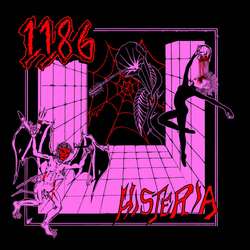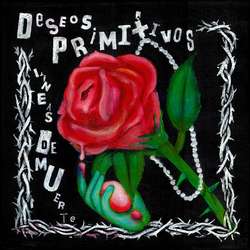Little Sister is an East Bay post-punk group with a passionate and well-deserved local following. The trio consists of Monbon and Erica, who both pull double duty on bass, guitar, and vocals, and Nada responsible, according to the album credits, for “drums, perc, beard and sunglasses.” Blues, soul, garage rock, early punk and, unless I’m mistaken, even salsa are among their influences, but they weave these disparate strands together effortlessly. They’ve won hearts due to their powerhouse vocals, infectious, rhythmically complex tunes, and frenzied live show.
I acquired their Split Up EP at one such show and, when I took it home, was elated that it was almost as good as their live set. It opens with “Stay Away,” which features confrontational lyrics, a hypnotic shuffling beat, and funky rhythm guitar. “Halfway There/Free” is bluesier and more melancholy, but still driving. “Cry Cry Cry” is a stand-out. Originally I was convinced that it had to be an obscure Black Sabbath cover, but no, it’s an original track, just one that happens to rock as hard as anything by the legendary band. The riffs have a gloriously classic sound, and the vocalists seem to be operating at two hundred percent of capacity.
This would seem like a tough act to follow, except that the next song is “Hola Chola,” a sultry, multilingual sonic seduction that is one of the band’s signature songs. “Lion’s Gate,” the EP’s penultimate track, picks up the pace and cranks up the urgency and the chorus has a great melodic hook. The album closer, “Split Up the Diamonds,” made less of an impression on me. The whispery jazz vocals are beautifully executed, the guitar gorgeous and shimmering, but it doesn’t grab attention like the other tracks. Nevertheless, I think putting this less immediate and more difficult tune at the end of the EP was a strong decision in many ways, showing a softer side of Little Sister.
Split Up is a strong debut from a group of very talented musicians who have developed an incredibly unique and off-beat sound. They’ve fearlessly mixed influences that few would even think to combine, and even better than that, they have a sentiment all their own that could only come from within. While Split Up may not be consistent all the way through, it’s damn good, and deserves bonus points for true originality.





